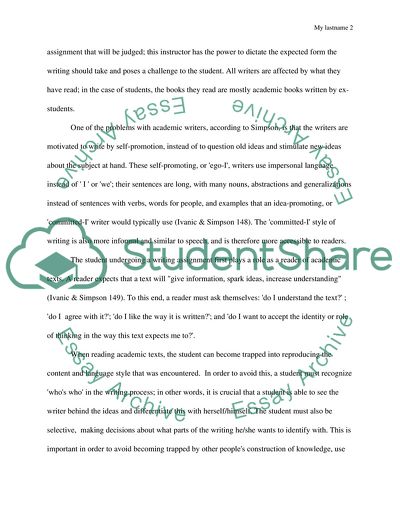Cite this document
(The Concept of Voice in Academic Writing Assignment - 1, n.d.)
The Concept of Voice in Academic Writing Assignment - 1. https://studentshare.org/education/1707456-the-concept-of-voice-is-useful-for-academic-writing-discuss
The Concept of Voice in Academic Writing Assignment - 1. https://studentshare.org/education/1707456-the-concept-of-voice-is-useful-for-academic-writing-discuss
(The Concept of Voice in Academic Writing Assignment - 1)
The Concept of Voice in Academic Writing Assignment - 1. https://studentshare.org/education/1707456-the-concept-of-voice-is-useful-for-academic-writing-discuss.
The Concept of Voice in Academic Writing Assignment - 1. https://studentshare.org/education/1707456-the-concept-of-voice-is-useful-for-academic-writing-discuss.
“The Concept of Voice in Academic Writing Assignment - 1”. https://studentshare.org/education/1707456-the-concept-of-voice-is-useful-for-academic-writing-discuss.


